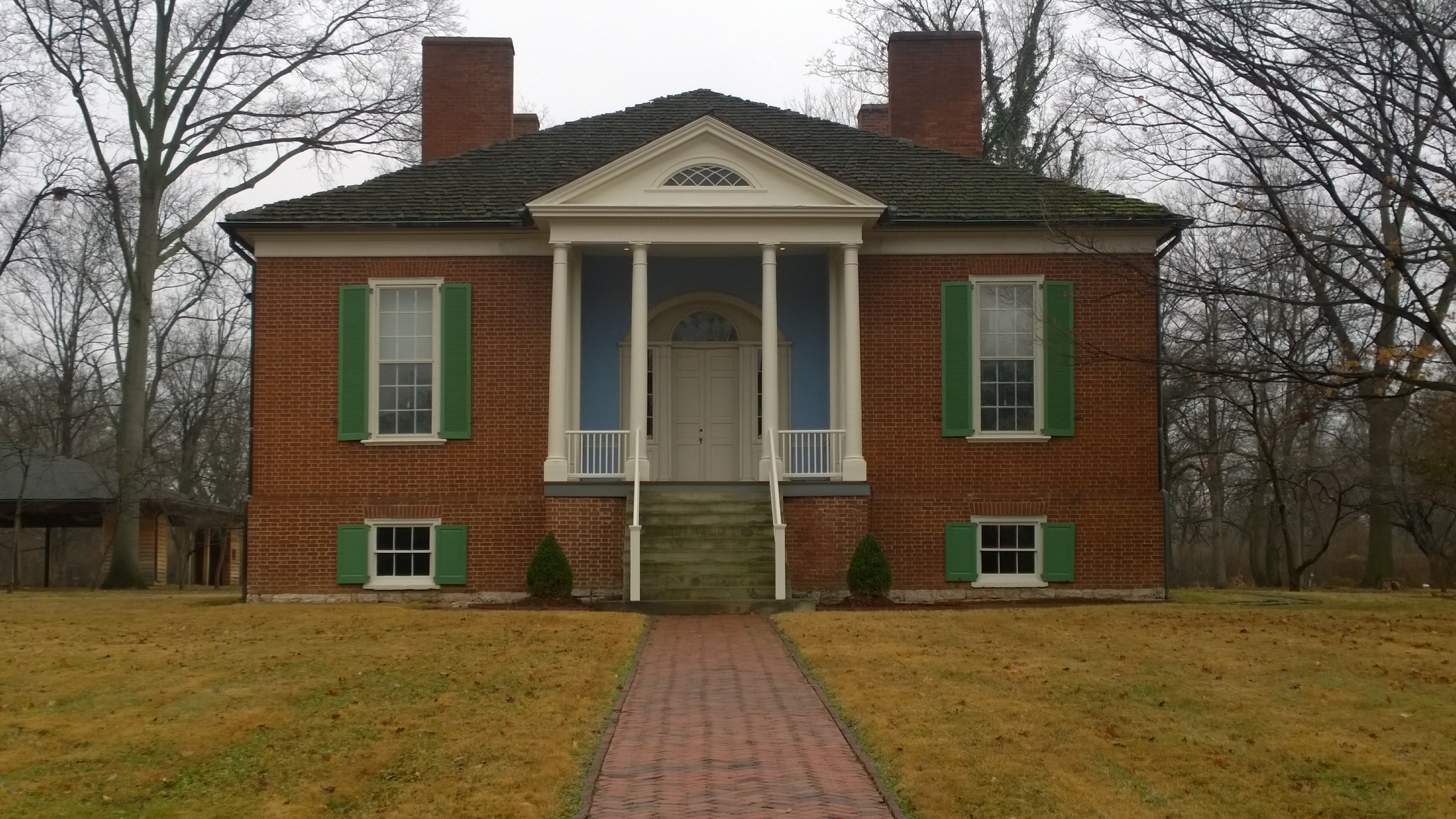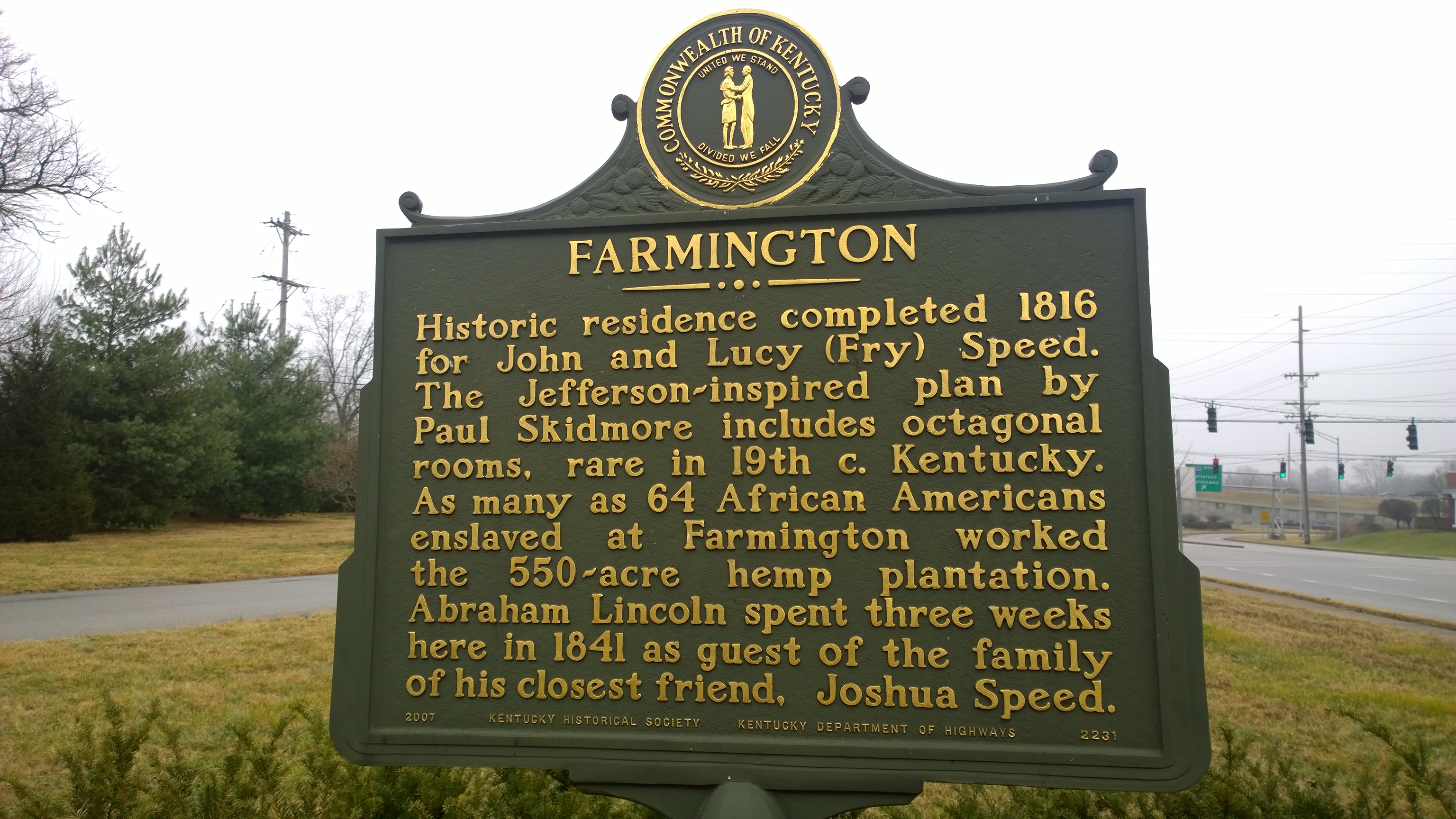Historical Marker # 2231 Farmington
Location:
Farmington Estate 3033 Bardstown Rd. Louisville, KY
Marker Text:
“Historic residence completed in 1816 for John and Lucy (Fry) Speed. The Jefferson-inspired plan by Paul Skidmore includes octagonal rooms, rare in 19th c. Kentucky. As many as 64 African-Americans enslaved at Farmington worked the 550-acre hemp plantation. Abraham Lincoln spent three weeks here in 1841 as guest of the family of his closest friend, Joshua Speed.”
“After his visit, Lincoln described a group of shackled slaves he saw on his steamboat trip home. Later he called the memory a “continual torment to me.” During the Civil War the Speeds supported the Union and Joshua’s ties to Lincoln helped secure Kentucky for the Union. Lincoln appoint James Speed Attorney General in 1864.”

County Hempstory:
Jefferson County is where the hemp narrative thread entwines directly with slavery to weave the Kentucky historical narrative.
Hemp and Slavery:
Two historic homes help tell the story of hemp and slavery in Kentucky. Oxmoor Farm and Farmington Plantation.
A visit to Louisville is not complete without a visit to Farmington. The historic plantation is now a restored museum available for tours.
The Oxmoor Farm Story:
While Farmington tells the story of Lincoln’s awakening to the evils of slavery, the historic home at Oxmoor Farm opens the door on the story of Kentucky’s descent into slavery.
Alexander Scott Bullitt was born in Virginia in 1761. He moved to Kentucky in 1783, settling in a town his uncle had surveyed known today as Louisville. Once settled, Alexander Scott Bullitt married his neighbors daughter, Priscilla Christian. They built their home Oxmoor in 1787.
Born in 1743 William Christian was one of Louisville’s earliest settlers. On the tail of military career that included service during the French Indian War, Dunmore’s War and the Revolutionary War Christian set out to establish Fort William to protect settlers in what is now Louisville. William Christian was married to Anne Henry, Virginia Governor, Patrick Henry’s sister.
William C. Bullitt, at the Kentucky constitutional convention of 1849, declared that if Kentucky wanted to remain a leader in tobacco and hemp production it must remain a slave state.
Bullitt’s words express popular sentiment and as a result the Kentucky Constitution of 1850 reinforces the rights of slave owners.

